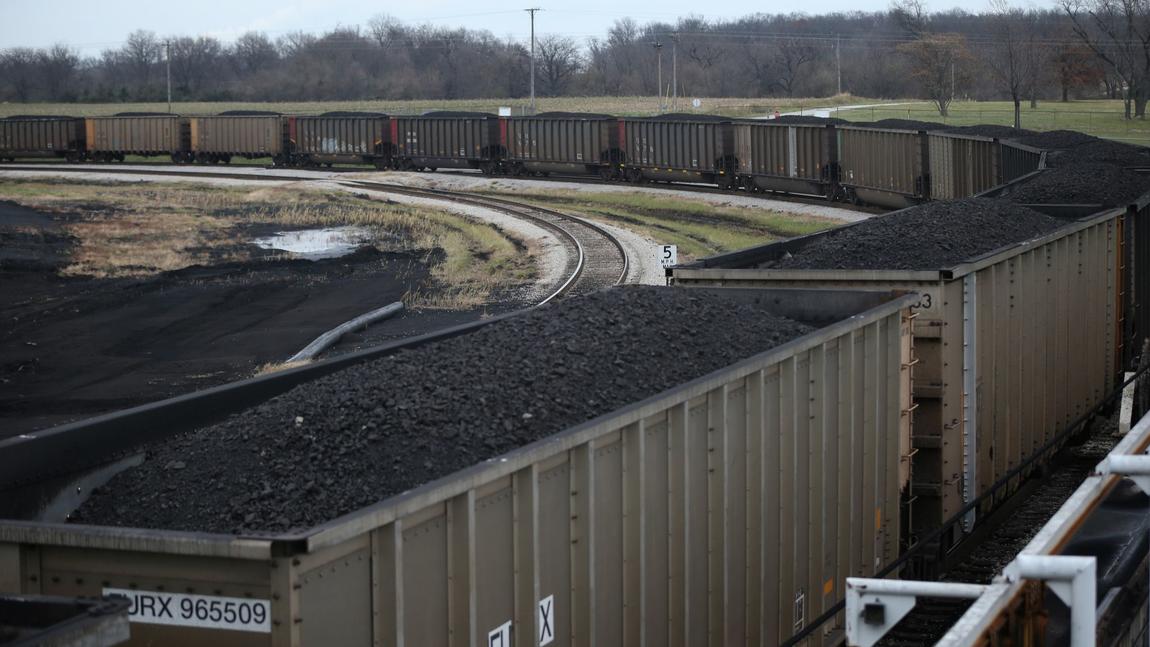State Panel Shelves Illinois Governor's EPA Plan to Ease Pollution Rules for Illinois Coal Plants

By Michael Hawthorne
October 5, 2018 - With the Nov. 6 election looming, a state panel on Thursday shelved Illinoise Governor Bruce Rauner’s proposal to relax limits on lung-damaging pollution from some of the last coal-fired power plants in Illinois.
The decision by the five-member Illinois Pollution Control Board, four of whom are Rauner appointees, delays a final ruling on controversial changes intended to benefit a single company, Texas-based Vistra Energy, until after voters decide if the Republican governor gets another four-year term.

Illinois Governor Bruce Rauner
Rauner’s staff had earlier pushed for quick adoption of amendments to state rules that would have scrapped limits on the rate of pollution from Vistra’s eight coal plants in central and southern Illinois. The proposed changes, drafted with extensive input from the company’s Chicago-based attorneys, would have replaced the rate-based limits with annual caps on tons of sulfur dioxide and nitrogen oxide emitted by the fleet — a subtle but significant shift that could have stalled or reversed efforts to reduce Vistra’s contributions to smog, soot and acid rain.
The Tribune first reported in September 2017 that Rauner’s proposal would have allowed Vistra’s fleet to emit significantly more pollution than it had during each of the previous two years. Critics, including Illinois Attorney General Lisa Madigan and a coalition of environmental groups, delayed a vote while the state rule-making panel reviewed their objections.

Freight cars transport Wyoming coal to an Illinois Dynegy coal-fired power plant on December 10, 2012.
Photo by E. Jason Wambsgans, Chicago Tribune
“The proposal would have allowed (Vistra) to burn more coal at its dirtiest, cheapest plants in Illinois and put public health and the environment at risk,” said Howard Learner, executive director of the nonprofit Environmental Law and Policy Center, which obtained emails detailing how the Rauner administration allowed company attorneys to tweak the proposal so the coal fleet could continue emitting the same amount of pollution even if some of the power plants closed.
Spokeswomen for Vistra and the Rauner-led Illinois Environmental Protection Agency declined to comment on Thursday’s ruling pending a review by company executives and state regulators.
Vistra obtained the Illinois power plants earlier this year when it took over another Texas-based company, Dynegy Inc., which had doubled down on coal after emerging from bankruptcy. Like other energy companies, Vistra and Dynegy have found it increasingly difficult to make money running coal plants as a surge of cleaner-burning natural gas and pollution-free wind power drives down the wholesale cost of electricity.
Built in the 1950s, '60s and '70s, the Vistra plants for years were exempt from the toughest provisions of the federal Clean Air Act. But laws and regulations became steadily tougher during the past two decades as scientists documented how pollution drifting from coal plants can trigger lung and heart disease and lead to early deaths far away from the smokestacks.
Improvements in pollution control are the main reason why the combined amount of sulfur dioxide emitted by the eight coal plants dropped 68 percent between 2010 and 2016. During the same period, the amount of electricity generated by the plants dropped by 26 percent.
Burning coal to generate electricity also is contributing to climate change. The company’s Illinois plants emitted more than 32 million tons of heat-trapping carbon dioxide in 2016, an amount equivalent to the tailpipe exhaust of 6 million cars.
None of the power plants burns Illinois coal. The company ships its fuel by train from Wyoming mines that produce coal with a lower sulfur content. But the coal plants employ about 1,000 people and contribute to the tax base of local communities that have struggled economically for decades.
“Only by putting the health of nearby residents and the future of workers and communities first can we come up with a plan that works for Illinois —not the Texas corporation seeking these favors at the expense of all of us,” said Jack Darin, executive director of the Sierra Club’s Illinois chapter.
Darin and others noted that both Dynegy and Vistra have said they might shut down the coal plants even if Rauner’s proposal were to be approved.
“I don't believe (coal) is going to have a renaissance," Curtis Morgan, Vistra’s chief executive, told CNBC in April. "I think it's on its way out."

